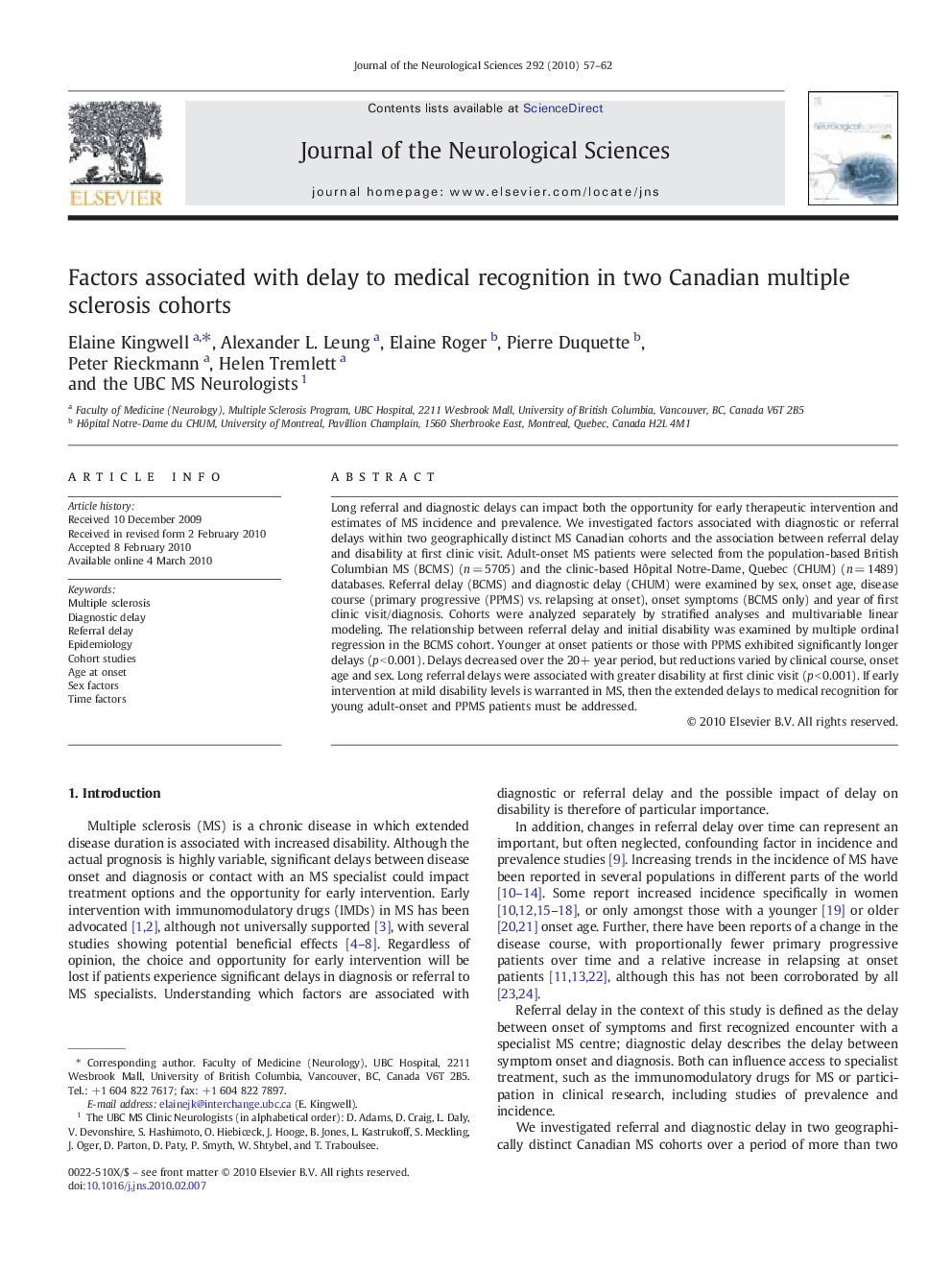| Article ID | Journal | Published Year | Pages | File Type |
|---|---|---|---|---|
| 1914603 | Journal of the Neurological Sciences | 2010 | 6 Pages |
Abstract
Long referral and diagnostic delays can impact both the opportunity for early therapeutic intervention and estimates of MS incidence and prevalence. We investigated factors associated with diagnostic or referral delays within two geographically distinct MS Canadian cohorts and the association between referral delay and disability at first clinic visit. Adult-onset MS patients were selected from the population-based British Columbian MS (BCMS) (n = 5705) and the clinic-based Hôpital Notre-Dame, Quebec (CHUM) (n = 1489) databases. Referral delay (BCMS) and diagnostic delay (CHUM) were examined by sex, onset age, disease course (primary progressive (PPMS) vs. relapsing at onset), onset symptoms (BCMS only) and year of first clinic visit/diagnosis. Cohorts were analyzed separately by stratified analyses and multivariable linear modeling. The relationship between referral delay and initial disability was examined by multiple ordinal regression in the BCMS cohort. Younger at onset patients or those with PPMS exhibited significantly longer delays (p < 0.001). Delays decreased over the 20+ year period, but reductions varied by clinical course, onset age and sex. Long referral delays were associated with greater disability at first clinic visit (p < 0.001). If early intervention at mild disability levels is warranted in MS, then the extended delays to medical recognition for young adult-onset and PPMS patients must be addressed.
Keywords
Related Topics
Life Sciences
Biochemistry, Genetics and Molecular Biology
Ageing
Authors
Elaine Kingwell, Alexander L. Leung, Elaine Roger, Pierre Duquette, Peter Rieckmann, Helen Tremlett, the UBC MS Neurologists the UBC MS Neurologists,
